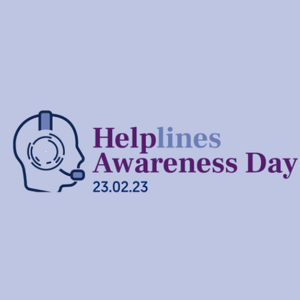Why communication is so important prevent the spread of COVID

After almost a full year of adapting to restrictions on travel, gatherings, and outings, we are now finally, hopefully, seeing the light at the end of the tunnel. On Tuesday 8th of December, a 90-year-old woman became the first U.K. citizen to receive the Pfizer/BioNTech vaccine, one of several vaccines that will be administered to people across the U.K. in coming months.
As well as the Pfizer/BioNTech vaccine, the government is busy precuring and devising how to administer 5 million doses of Moderna’s solution and 100 million of the U.K.-developed Oxford University/Astra Zenica version.
Who will get the COVID-19 vaccine first?
Because every country around the world will be clamouring for doses, supply of the vaccine will of course be limited. What this means for us is that those at the sharp end of the virus and the containment efforts will be getting the jab first.
Healthcare workers, care home residents, the elderly, and the vulnerable will be the first to receive the vaccine. For most of us under 50, this likely means a bit of a wait, nonetheless suggestions that normality may be on the way back by Easter have been banded around by those in government.

The COVID vaccine and travel
One of the first questions many of the travel-starved among you will be asking is ‘when can I go on holiday?’ The answer is unfortunately not a clear one. A lot is dependent on how the vaccine rollout goes ahead in the U.K. and how it is distributed in other countries. There is also a considerable likelihood that, in order to travel, you’ll need to possess some form of vaccination passport to prove your inoculation.
Importantly, the vaccine won’t affect the ongoing second wave, meaning that existing restrictions will have to remain in place until infection rates fall.
What this means for how we work and communicate
Many of you will have felt the most obvious change in working routines this year, as you took up almost permanent residence at your home desk. The pandemic has also resulted in a dramatic shift towards the use of video conferencing and remote working, especially when working on an international and multi-lingual basis.
Adapting to new methods of communicating across borders means that the way we converse with those who don’t speak the same language as us has changed too. Prior to the pandemic, many international conversations could be had in one location with an interpreter present.
Now, these services have moved online in tandem with remote conferencing, meaning interpreters are able to provide crucial business services via a video link or phone call. These remote options have enabled businesses to continue to operate across borders and maintain links that are now more vital to survival than ever.

Within the world of medicine and healthcare, face-to-face interpreters have long been a staple of how health professionals communicate with patients who don’t speak English. Throughout the pandemic, however, these potentially life-saving interpretations have moved to phone and video services too. This shift not only allows patients from all backgrounds to access crucial services, it also removes one extra person from a physical interaction where coronavirus could be further contracted or spread.
The future
While the various vaccines herald a return to some sense of normality, the transition is likely to be slow. This means that current adaptations and coping mechanisms such as remote working and remote interpreting alongside it are almost certain to remain necessary for some time.
To learn how your business could secure or maintain international relationships with remote interpreting for meetings and communications, contact WORD360 today.

Elliot Glynn
June 4, 2021Recent articles


Related Services
.png?width=600&height=300&name=Untitled%20design%20(2).png)
Interpreting
Interpreting is where conversations are relayed from one language to another. How those conversations are conducted is where we add value. From in person meetings to remote video interpreting including British Sign Language, let us help you find the right solution.
.png?width=600&height=300&name=Untitled%20design%20(3).png)
Translation
Our global network of translators work around the clock in over 350 languages and dialects. Working across an extensive range of industries, our Word360 sector specialist experts translate everything from medical, pharmaceutical, legal, cosmetics, charity to marketing, e-learning and many more
.png?width=600&height=300&name=Untitled%20design%20(4).png)
Make My Services Inclusive and Accessible
Communication challenges affect many people in the UK, from non-native English speakers to those who have hearing, speech or learning impairments. These challenges can make it difficult for individuals to fully participate in society and access essential services
